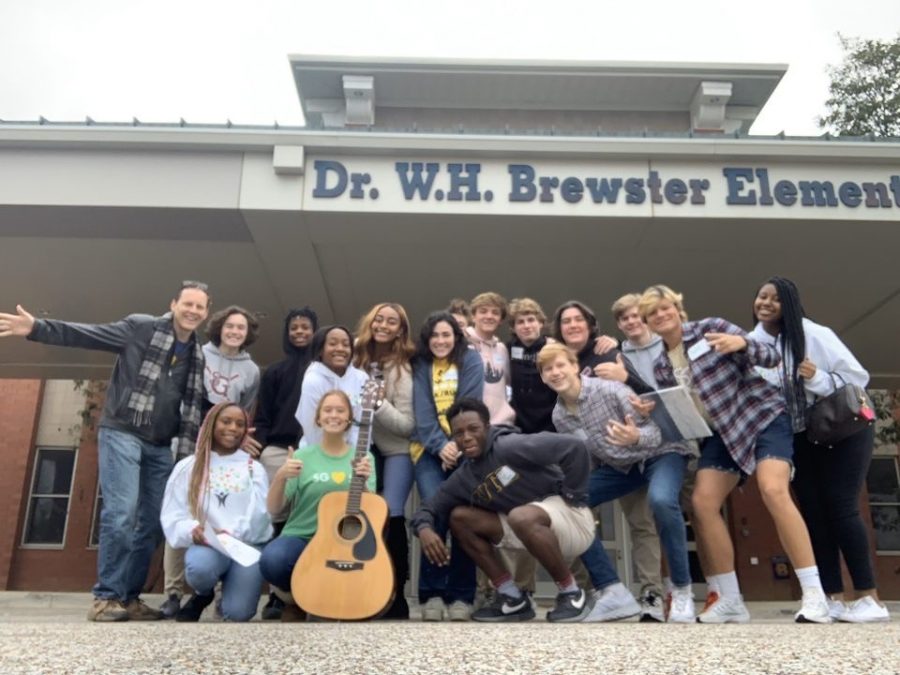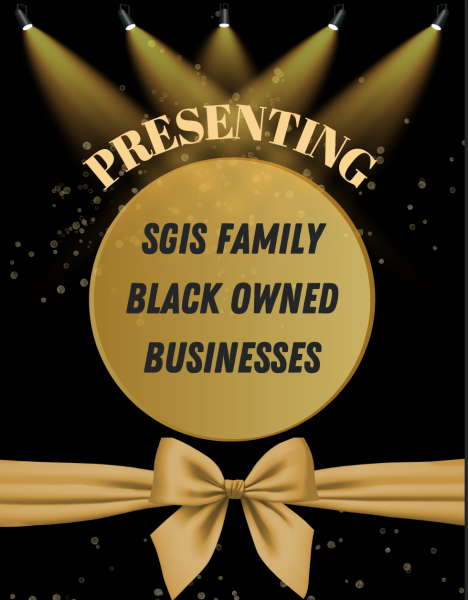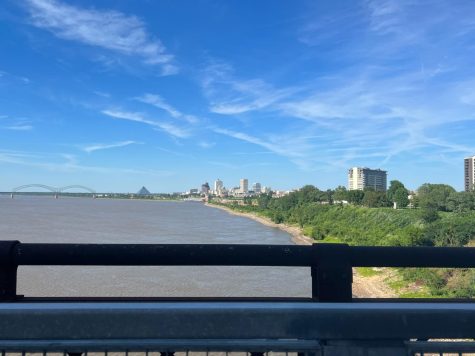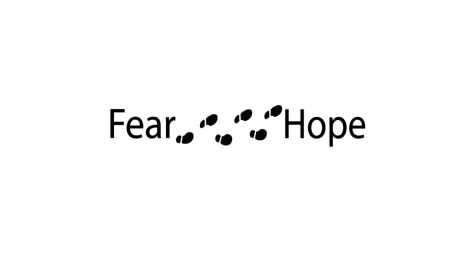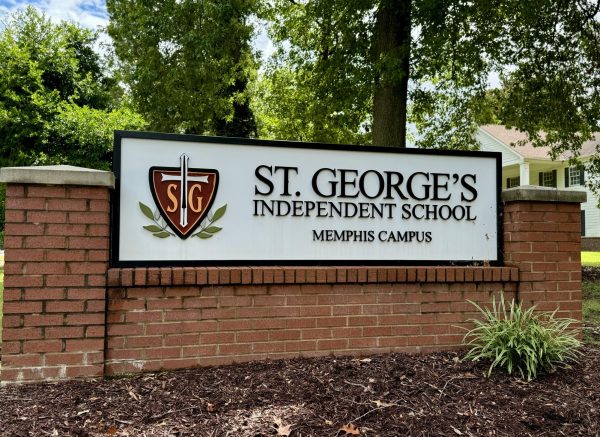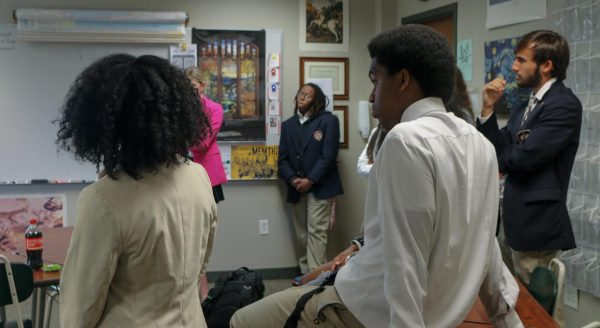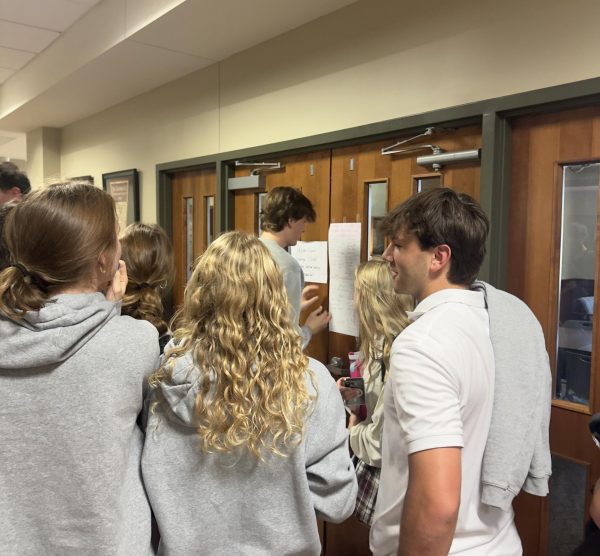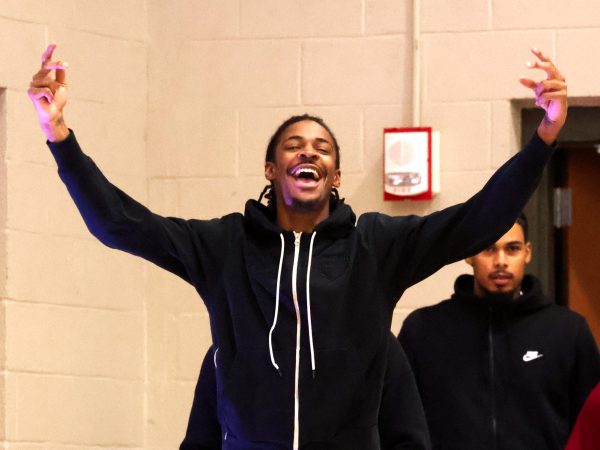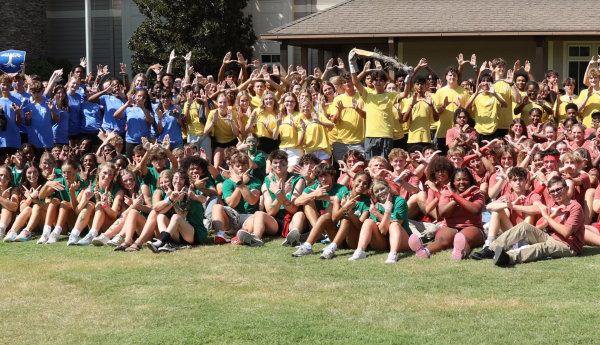Leading into the Unknown
Mr. Hills guides the Institute for Citizenship as it responds to the pandemic
Mr. Hills stands with members of the Institute for Citizenship in front of Dr. W.H. Brewster Elementary School, which was the site of a service project last year. Mr. Hills had to rely on the members to find the focus of their service this year. Photo courtesy of Joy Huff.
How do you lead an organization dedicated to global citizenship during a global pandemic? Mr. Jason Hills is betting that the St. George’s Institute for Citizenship can adapt.
“The whole world is basically in [this] new situation,” ninth-grade history teacher and Director of the Institute Mr. Hills said. “A sink or swim situation, where we either adapt to the changes or we don’t.”
The Institute for Citizenship is an elective course committed to service and targeting global issues, including the coronavirus pandemic. Normally, it’s syllabus revolves around multiple field trips around the nation to places like Washington D.C. and New York City, as well as numerous service projects in the greater Memphis area.
Mr. Hills has had to transform this experience from a hands-on learning service course to a socially distant one, but he claims this is a “positive challenge.”
“The people that adapt to the changes not only survive but thrive in an age of acceleration,” Mr. Hills said, referring to the term used by author Thomas Friedman to describe a period of drastic change. “We have had to pivot away from lots of travel and in-person activities to more online connections and community building in ways that we can still distance.”
The pivot to online relationships has been an adjustment for all involved.
“The negative aspect is that we cannot go out into our community and help person to person,” Kym Young, a second-year member of the Institute, said. “[But] we can also have in-depth conversations with people that are far away through Zoom.”
One of the activities Mr. Hills anticipates working on involves a Skype project with students in Beirut, Lebanon.
“We are going to talk about how the pandemic is affecting their lives versus our lives,” Mr. Hills said. “We are going to see how things are similar, how things are different, and then create a problem-solving project where we can figure out how we can benefit our mutual societies with our actions.”
Mr. Hills has turned to the members of the Institute for ideas on how to distantly serve in the midst of a pandemic.
“We came up with ideas of [things] we can do socially distanced,” Bess White, a first-year member of the Institute, said.
Mr. Hills said that he is proud of the culture the faculty and students have created in the St. George’s in response to the pandemic’s challenges.
“The strength of the culture of St. George’s Independent School has catapulted us into this new challenge together and actually made us closer,” Mr. Hills said.
Full Disclosure: Abby Grace Dodson is a member of the Institute for Citizenship.


